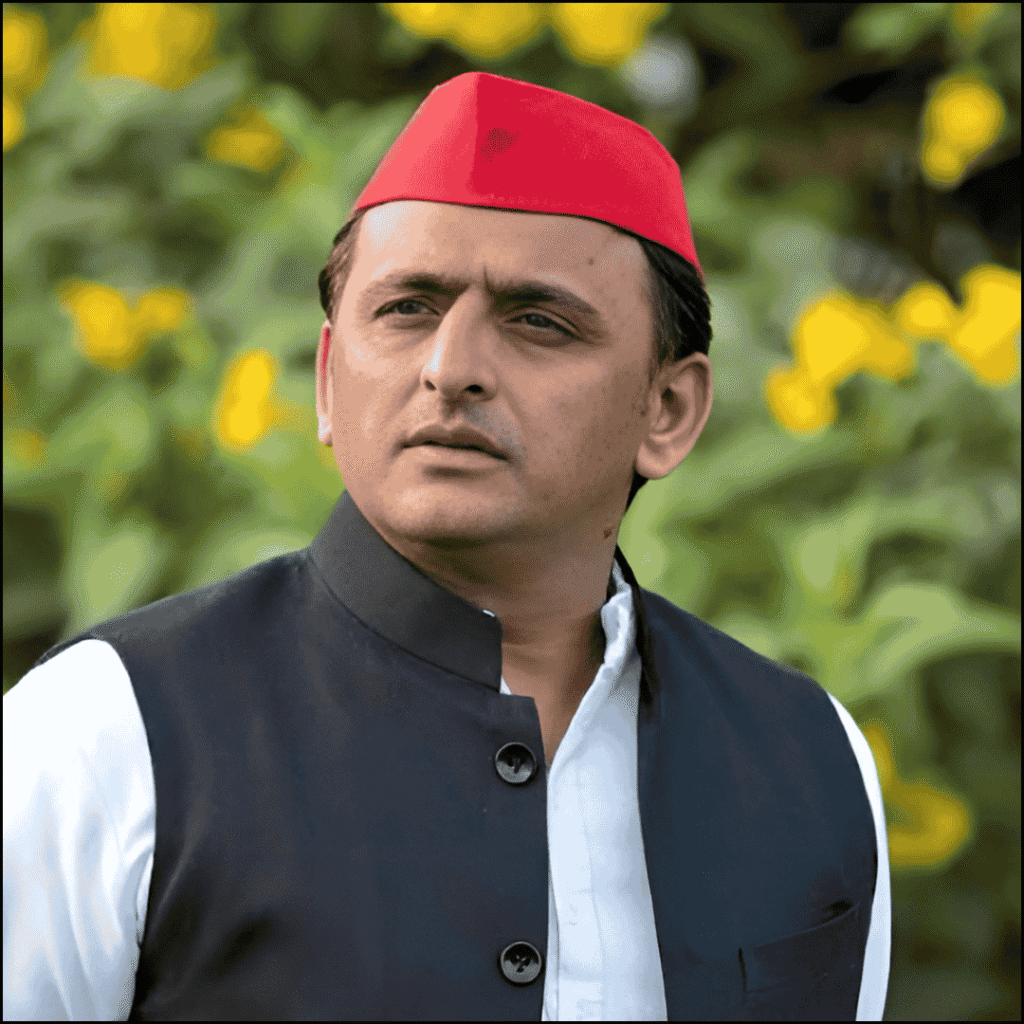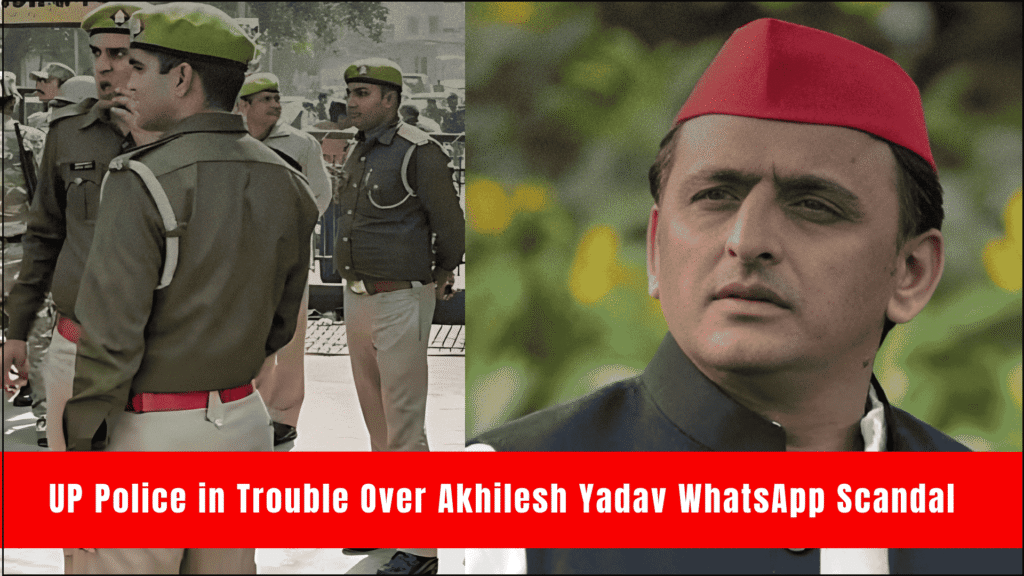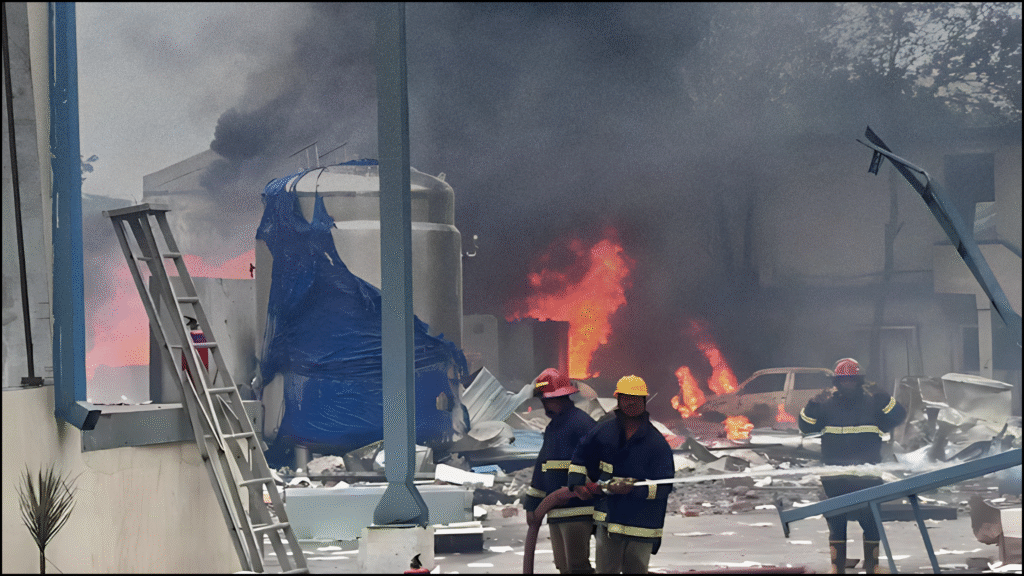
In a striking incident that has stirred political and social media circles in Uttar Pradesh, six policemen from Firozabad were suspended on July 4, 2025, for sharing an “objectionable” WhatsApp status targeting Samajwadi Party (SP) president and Kannauj MP, Akhilesh Yadav. The swift action, taken within 24 hours of a complaint lodged by the SP, underscores the sensitivity of political discourse in the state and the consequences of public servants engaging in controversial online behavior. This blog delves into the details of the incident, its political context, and the broader implications for social media conduct among public officials.
What Happened in Firozabad?
The controversy began when Constable Pradeep Thakur, stationed at Shikohabad police station in Firozabad, posted a WhatsApp status containing derogatory remarks about Akhilesh Yadav. The content, reportedly linked to a Yadav vs. Brahmin caste dispute, was deemed offensive by the SP leadership. Five other policemen—Head Constable Kuldeep and Constables Rahul, Amit, Arun, and Saurabh—amplified the issue by sharing or commenting on the post, causing it to go viral on platforms like WhatsApp and Facebook. The rapid spread of the content prompted outrage among SP supporters, who escalated the matter to the district authorities.
Following a complaint from the SP’s district unit chief, Shivraj Singh Yadav, Firozabad Senior Superintendent of Police (SSP) Saurabh Dixit ordered an immediate investigation. The probe, led by Circle Officer (CO) Chanchal Tyagi, confirmed the allegations by Friday afternoon, July 4, 2025. The six policemen were suspended based on Tyagi’s report, with SSP Dixit indicating that further action against other involved officers remains possible as the investigation continues.
Political Context and Akhilesh Yadav’s Influence
Akhilesh Yadav, a former Chief Minister of Uttar Pradesh and the current Lok Sabha MP from Kannauj, is a towering figure in the state’s political landscape. Leading the Samajwadi Party, Yadav has been a vocal critic of the ruling Bharatiya Janata Party (BJP). His party’s strong performance in the 2024 Lok Sabha elections, in alliance with the Congress, significantly dented the BJP’s majority, making him a formidable opposition leader. The objectionable WhatsApp status, which reportedly touched on caste dynamics, struck a nerve given Yadav’s advocacy for social justice and his party’s PDA (Pichhda, Dalit, Alpasankhyak) formula aimed at uniting marginalized communities [News18,; NDTV,].
The incident highlights the delicate balance of caste and political loyalties in Uttar Pradesh, where social media has become a battleground for narratives. The viral nature of the post amplified its impact, drawing swift condemnation from SP supporters and putting pressure on the state administration to act decisively.
Official Response and Investigation
The Firozabad police acted promptly to contain the fallout. SSP Saurabh Dixit’s decision to suspend the six policemen was based on a thorough investigation by CO Chanchal Tyagi, whose report confirmed the involvement of the accused officers. The suspensions were announced within 24 hours of the SP’s complaint, signaling the administration’s intent to address the issue transparently. However, the investigation remains ongoing, with authorities indicating that more officers could face disciplinary action if found complicit [The India Daily,; Live Hindustan,].
This is not the first instance of police personnel in Uttar Pradesh facing repercussions for political misconduct. In November 2024, the Election Commission suspended several officers following complaints from Akhilesh Yadav about voter suppression during bypolls, highlighting a pattern of political tensions influencing law enforcement actions [Hindustan Times]
Implications for Social Media Conduct
The suspensions raise critical questions about the boundaries of free speech for public servants, particularly on platforms like WhatsApp, which blur the line between personal and professional conduct. Police officers, as public officials, are expected to uphold neutrality, especially in a politically charged state like Uttar Pradesh. The incident underscores the need for stricter guidelines on social media use by government employees to prevent such controversies.
Moreover, the rapid virality of the WhatsApp status illustrates the power and pitfalls of social media in shaping public perception. For opposition parties like the SP, social media is a double-edged sword—while it amplifies their voice, it also exposes them to targeted attacks, as seen in this case [X Post,].
Broader Political Ramifications
The incident has fueled debates about political accountability and the role of law enforcement in Uttar Pradesh. The SP has leveraged the controversy to criticize the BJP-led state government, framing it as evidence of bias within the police force. Meanwhile, the suspensions demonstrate the administration’s willingness to act against erring officers, possibly to defuse accusations of partisanship.
As the investigation progresses, the outcome could influence public trust in both the police and the state government. For Akhilesh Yadav and the SP, this incident reinforces their narrative of being targeted by political adversaries, potentially galvanizing their voter base ahead of future elections [Prabhat Khabar,].
Conclusion
The suspension of six Firozabad policemen for sharing an objectionable WhatsApp status about Akhilesh Yadav is more than a localized controversy—it reflects the intersection of politics, caste, and social media in Uttar Pradesh. The swift response from the authorities highlights the seriousness of the issue, while the ongoing investigation suggests that the matter is far from resolved. As social media continues to shape political discourse, this incident serves as a cautionary tale for public servants about the consequences of online misconduct.
For further updates on this developing story, visit Hindustan Times or News18. Stay informed about Uttar Pradesh’s political landscape by following credible sources and engaging with platforms like X for real-time reactions.



